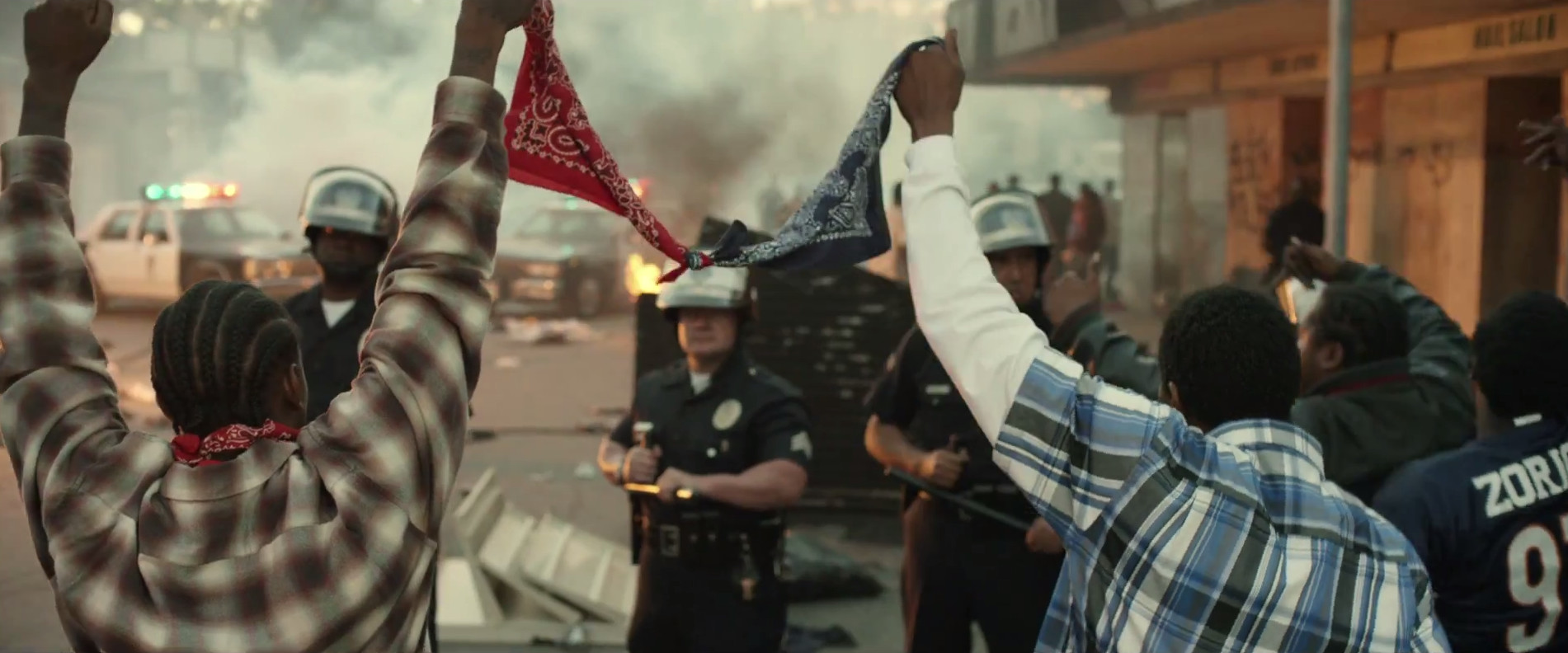F. Gary Gray’s latest film “Straight Outta Compton” is as intense and unrelenting as its namesake’s album.
Straight Outta Compton explores N.W.A’s journey over a decade. The film could easily be made into a trilogy, the first depicting the group’s formation and eventual overwhelming success, then the second outlining the group’s separation with Ice Cube’s lyrical feud with Eazy-E and Dr Dre’s venture with Suge Knight on Death Row Records, and the third portraying the group’s aim to reunite until Eazy-E’s dies of AIDS.
O’Shea Jackson Jr., Corey Hawkins, and Jason Mitchell are unapologetically angry and amoral as Ice Cube, Dr Dre, and Eazy-E respectively. Jackson Jr. perfectly embodies the raw anger and talent of his father, penning raps that reject the injustices inflicted by an inherently racist society. Mitchell’s role perfectly balances Eazy-E’s self-assured arrogance with gut-wrenching heartbreak at the unveiling of his illness and his manager’s betrayal. Hawkins contrasts these eruptive personalities with a quiet determination, focussed on producing music that embodies his experiences. Each member of N.W.A has a remarkable chemistry, creating emotive scenes that feel genuine instead of forced or sappy.

The film’s music isn’t a soundtrack but an integral character that pervades the film and is intrinsic to its success. Ice Cube claims their “music is a reflection of our reality”, and it’s used in the film to prove their raps were a non-violent protest to relentless discrimination. In a scene perfectly highlighting the film’s use of music acting as a story-teller, the audiences sees the conception of the song “Fuck Da Police”, a reaction to unprovoked police harassment and their white manager’s first realisation of the prejudice faced by his clients on a daily basis. As the song becomes an anthem for the discriminated minorities, the group is told not to perform the song by the Detroit police. They predictably defy this demand, resulting in arrests and a crowd riot.

The film, like any biopic, stretches the truth and omits major sections of its protagonists’ lives. Notably, Straight Outta Compton‘s revisionist history sees Dr Dre’s violent history with women omitted from the story. The soundtrack is littered with songs depicting injustices, not their misogynistic titles like “A Bitch Iz a Bitch”, “Findum, Fuckum & Flee”, “One Less Bitch”, and perhaps most offensively, “She Swallowed It”. The reference to the band’s sexism is unsubtly portrayed in the film with the majority of the women being mostly naked with little to say, a reflection of many rap film clips.
Hip-hop’s cultural urgency is at an all-time high, the current cries of “black lives matter” echoing the case of Rodney King, an event that is weaved through the film, a subplot that supports N.W.A’s protests. The film coincides with the 27th anniversary of the album’s release, and is an important cultural commentary on a prejudice that is sadly very much still in existence.







